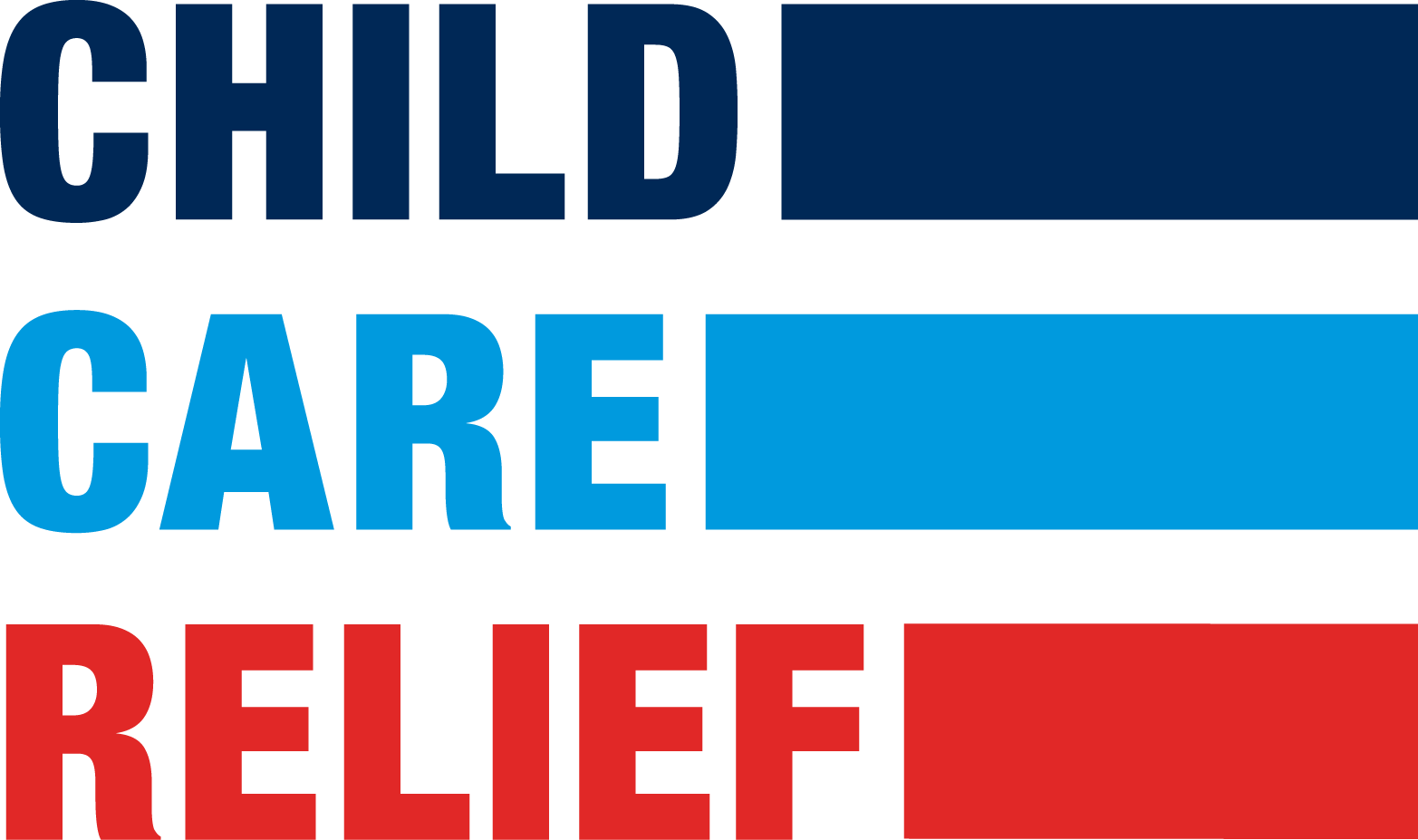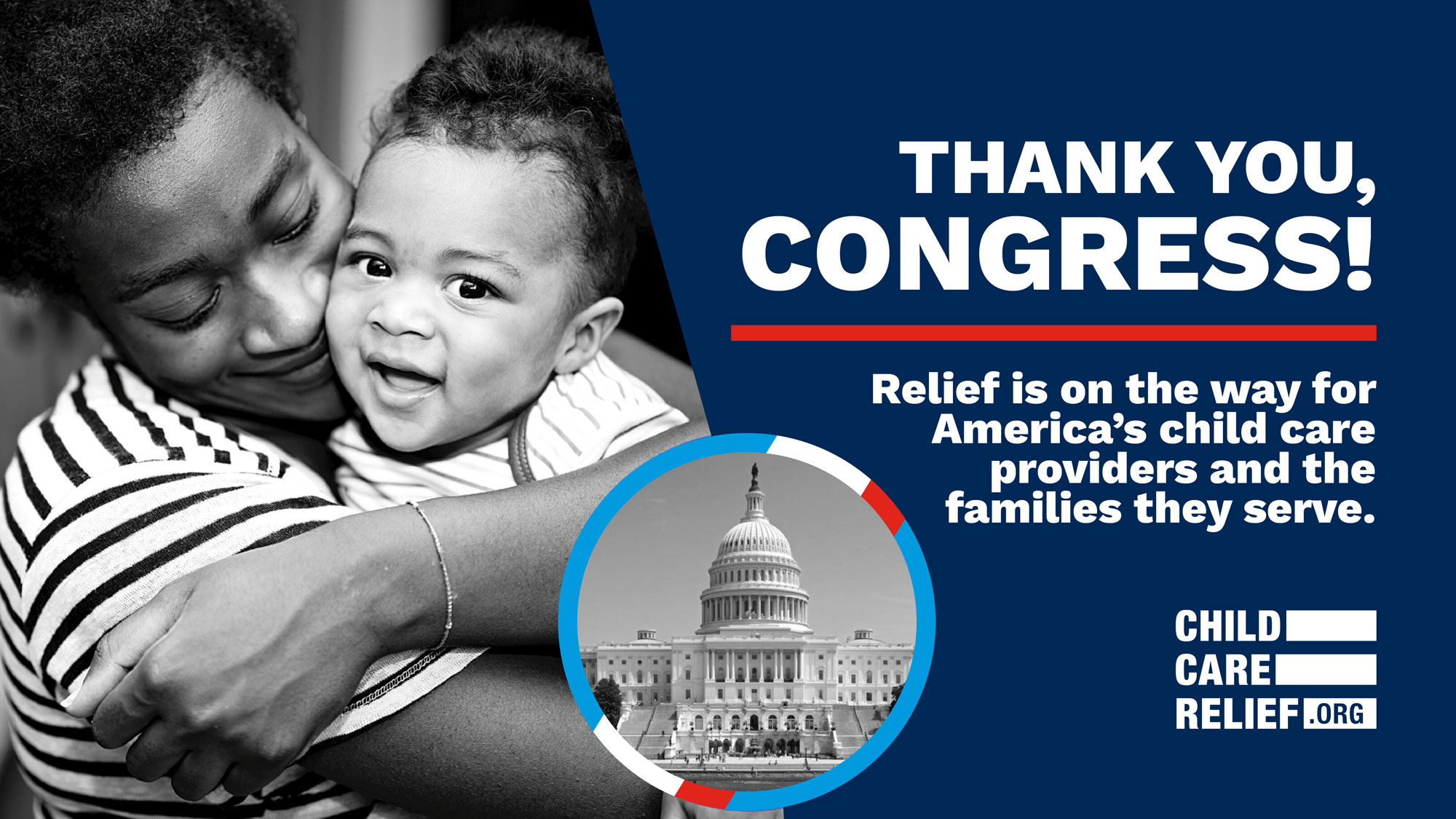
Bipartisan Congressional Briefing Reinforces Undeniable Need for Dedicated Child Care Relief

This week, Child Care Relief hosted a virtual briefing on the critical need for Congress to include a child care stabilization fund in the next economic stimulus package.
In case you weren’t able to join, here are some highlights from the moving testimonies by parents, providers, state administrators, and members of the business community:
- Lucy Recio from the National Association for the Education of Young Children (NAEYC) presented results from the organization’s latest survey of childcare providers, which indicates that 41 out of every 50 programs are expected to close within the year without additional, dedicated stabilization funding. “The desperation is palpable, and I cannot sugarcoat this: I have been working in this space for over a decade and I have not seen the devastation and loss like what is facing our child care sector today,” she added.
- Calvert’s ABC Preschool and Nursery’s program director Jennifer Calvert expressed her fear for the future of her Aberdeen, Mississippi-based child care center: “As programs like mine are closing, this will not only be a loss for individuals like myself who have spent years building up my program, but also for the families we serve who rely on our services, for children in our community who will miss out on the strong start that we know early childhood education provides, and for our community which will not be able to recover without us.”
- Woody Dover from Georgia’s Department of Early Care and Learning explained that the state had to jump into quick action to support and stabilize child care providers, but that there is much more work to be done. “Though the CARES Act funding received has been significant and critical, there is a great deal of uncertainty as to how many child care providers will eventually be able to reopen and serve the needs of families,” he said.
- Rasheed Malik from the Center for American Progress predicted that, without sufficient financial relief, the already-scarce supply of child care across the country – particularly in rural communities – will be decimated, leading to widespread economic challenges nationwide.
- Dr. Elanna Yalow of KinderCare Education and the Early Care and Education Consortium (ECEC) explained how COVID caused drastic loss in enrollment and increase in cost for providers: “Our operations are not sustainable, as we continue to operate many programs at considerable losses based on approximately a 30 to 35% increase in operating costs for staffing, supplies, and cleaning, while at significantly reduced capacity and revenues, serving only approximately half the number of children.”
- Dasja Reed, a Strolling Thunder parent from New Orleans, Louisiana, had to leave her job in March when her son’s daycare closed and is unable to return until she has access to care: “I’m still, unfortunately, out of work because I haven’t been able to find a daycare–I haven’t been able to find anything for my son right now.”
- Julia Barfield of the U.S. Chamber of Commerce Foundation discussed the central role of child care in facilitating return to work, citing how 20% of parents are unsure if they can return to pre-COVID working conditions, and how 40% of employers are concerned that parents will be unable to go back to work due to lack of child care.
- Scott Hall of the Greater Kansas City Chamber of Commerce said, “child care is the grease that allows the gear of American businesses to move. Without it, we will not recover.” Data gathered by the organization’s recent survey shows that child care constitutes business owners’ second biggest concern about COVID, closely trailing behind their concern for personal and employee safety.
- Robin Phillips, CEO of Child Care Aware of Missouri, shared that COVID-19 closures wiped out more than half of the state’s child care programs, but that the industry faced tremendous challenges long before the pandemic: “COVID has pulled back the curtain on everything that’s been lacking in this underfunded, underappreciated system.”
You can watch a recording of the briefing on Child Care Relief’s YouTube channel.
Lawmakers on both sides of the aisle have introduced legislation aimed at stabilizing the child care industry: Republican Senators Joni Ernst (R-IA) and Lamar Alexander (R-TN) introduced the Back to Work Child Care Grants Act earlier this week, and Democrat Senator Patty Murray and Representatives Rosa DeLauro (D-CT) and Bobby Scott (D-VA) introduced the Child Care is Essential Act in May. It is critical that these proposals are included in the upcoming COVID-19 recovery package.
If you are interested in learning more…
These resources dive deep into COVID-19’s impact on the child care industry:
- Our child care stabilization fund explainer walks through how this form of dedicated relief will enable states to shore up the child care system and allow parents to return to work.
- The National Association for the Education of Young Children (NAEYC) conducted a new survey of child care providers across the country that found 40% of them, and 50% of minority-owned providers, expect that they will close permanently without additional public assistance.
- A recent survey by Child Care Aware of America and Save the Children Action Network (SCAN) shows that 87% of voters support direct federal assistance for child care providers.
- “It’s past time to start talking solutions.” Leadership of SCAN and the U.S. Chamber of Commerce penned an op-ed in The Hill to call for long-overdue support for the child care industry.
- Bipartisan Policy Center’s new report concludes that only 6% of the nation’s child care providers received a loan through the Paycheck Protection Program (PPP).
- The Bipartisan Policy Center also hosted an online forum of 10 state child care administrators, who reached a consensus that CARES Act funds, though effective and needed, will not sustain the child care industry past the summer.
- This interactive map by the Center for American Progress (CAP) explores how COVID-19 has exacerbated child care deserts, communities where there are three times as many children as there are licensed child care capacity.
- An online discussion hosted by CAP and NAEYC heard from child care providers and their experiences in caring for children of essential workers and applying for loans.
- Polling data released by a University of Oregon research group finds that 48% of lower-income households will not be able to return to their pre-COVID child care arrangement.
